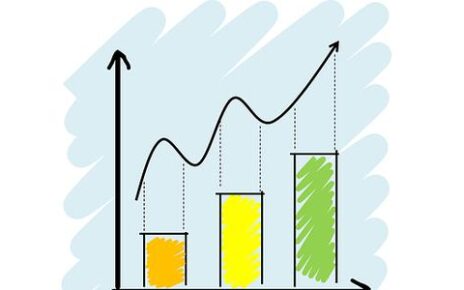Susan Segal has joined Robinhood Markets’ Board of Directors, bringing a wealth of leadership in economic inclusion, Latin American markets, and broad financial sector expertise to the company’s governance framework. Her appointment signals Robinhood’s continued focus on expanding accessibility to finance on a global scale, informed by decades of experience navigating complex markets, regulatory environments, and public-company oversight. As Robinhood positions itself to grow beyond its U.S. footprint while continuing to democratize investing, Segal’s background in policy, markets, and cross-border investment offers a strategic perspective on inclusion, growth, and responsible governance.
Announcement and leadership perspective
Robinhood Markets’ leadership announced the arrival of Susan Segal to its Board of Directors, underscoring the company’s commitment to strengthening governance with a leader who has spent a career at the intersection of finance, public policy, and regional development. The statement from Vlad Tenev, Robinhood’s Chief Executive Officer and Co-Founder, highlighted Segal’s recognized contributions in Latin America and the broader financial sector, noting that her extensive, decades-long work in driving economic inclusion, social empowerment, and expanded access to financial markets would be a valuable voice as Robinhood seeks to expand globally. The executive emphasized that Segal’s expertise aligns with the company’s mission to democratize finance for all, reinforcing the board’s role in guiding strategic direction while upholding rigorous governance standards.
Segal herself expressed a constructive view of Robinhood’s impact on the investing landscape. She credited Robinhood with reshaping how people access investing opportunities and with broadening participation by diverse investors. She noted that as the company sustains its momentum domestically and pursues opportunities overseas, her new role on the board will be to support Robinhood in its ongoing mission to democratize finance for a wider audience. This sentiment reflects a recognition of the evolving investor base and the importance of inclusive access as a central strategic objective.
In portraying Segal’s addition to the board, the company also reaffirmed the value of bringing seasoned leadership with a track record of public service, corporate governance, and market-building initiatives to a fast-evolving fintech environment. This move aligns with Robinhood’s broader governance strategy, which prioritizes diverse perspectives, experienced oversight, and informed risk management as the company navigates a dynamic regulatory landscape and a competitive marketplace.
Susan Segal: career arc, leadership roles, and educational foundations
Susan Segal’s professional journey spans more than two decades of leadership at the highest levels of policy-focused enterprises and financial markets. Since 2003, she has served as the President and Chief Executive Officer of the Americas Society and Council of the Americas, a platform for fostering dialogue on economic integration, governance, and cross-border collaboration across the Western Hemisphere. Her role has combined strategic leadership with the cultivation of partnerships among business communities, policymakers, and civil society organizations to promote regional prosperity and social advancement. Under her leadership, the organization has likely focused on issues central to regional growth, trade facilitation, and the intersection of commerce with democratic governance, aligning with broader interests in inclusive economic development.
Before assuming the helm at the Americas Society and Council of the Americas, Segal founded an investment advisory firm dedicated to Latin America and the U.S. Hispanic market. This entrepreneurial undertaking underscored her hands-on experience with market entry strategies, capital allocation, and advisory services tailored to diverse investor groups seeking exposure to the Latin American opportunity set. Her early-stage venture capital investments in Latin America, pursued as a partner at JPMorgan Partners/Chase Capital Partners, positioned her at the forefront of sources of capital for emerging companies in the region. This phase of her career demonstrates a commitment to nurturing innovation and facilitating access to venture funding in markets with significant growth potential.
Segal’s expertise also spans the development of investment banking capabilities in emerging markets. She played a pivotal role in constructing a Latin America-focused emerging-market bond-trading unit, a project that would have required deep knowledge of sovereign risk, debt instruments, and cross-border financing structures. Her leadership during the debt crisis era—spanning the 1980s and early 1990s—likely involved guiding advisory efforts, policy discussions, and market stabilization initiatives that affected numerous nations and financial institutions. This period was marked by volatility and restructuring, and Segal’s role in advising and chairing various committees suggests a capacity to navigate complex stakeholder environments, balance risk, and promote financial resilience.
Her board experience is extensive, extending beyond the private sector into public company governance. Segal has served on the boards of notable corporations, including MercadoLibre, Vista Energy, and Scotiabank, reflecting her breadth of experience across technology-enabled marketplaces, energy, and traditional financial services. Her leadership has been recognized through honors such as being named one of Bloomberg’s 500 most influential people in Latin America, a testament to her impact on regional markets, policy discussions, and economic development. Her academic credentials include a Master of Business Administration from Columbia University and a Bachelor’s degree from Sarah Lawrence College, underscoring a strong foundation in business education and liberal arts that informs a holistic approach to leadership, strategy, and governance.
Delving into each phase of Segal’s career reveals a consistent pattern: a proficiency for bridging public policy with private sector finance, a focus on inclusion and access to capital, and a talent for building organizational capabilities that support growth in complex, multi-stakeholder environments. The combination of policy leadership with private-sector financial expertise provides a unique vantage point for steering governance decisions, risk oversight, and strategic investments in a fintech context where regulatory considerations, consumer protection, and market access are central to success. Segal’s education—an MBA from a premier business school and a broad undergraduate background—further enhances her ability to analyze strategic trade-offs, interpret market signals, and oversee management teams tasked with delivering scalable, compliant, and customer-centric products and services.
The breadth of Segal’s experience—ranging from founding a focused advisory practice to leading a prominent policy-focused institution, to serving on multiple public company boards—creates a portfolio of insights that can inform board discussions on merit-based investment, cross-border operations, and sustainable business practices. Her track record suggests a capacity to contribute to governance in areas such as strategic planning, risk management, regulatory affairs, and international growth, all within a framework that prioritizes inclusion and financial empowerment for a broad audience. This combination of leadership experience, sector familiarity, and a demonstrated commitment to economic opportunity aligns with the broader goals of Robinhood as it navigates expansion, innovation, and responsible corporate citizenship.
The governance context: Robinhood’s board structure and leadership
Robinhood’s board room comprises a mix of founders, executives, and independent directors whose roles collectively shape the company’s governance, risk oversight, and strategic trajectory. The existing lineup includes the CEO and Co-Founder Vlad Tenev, who leads the company’s overall vision, product strategy, and operational execution; and Baiju Bhatt, the Chief Creative Officer and Co-Founder, who contributes to product design, user experience, and strategic branding. The board also features Jon Rubinstein, who serves as the lead independent director and brings experience as a seasoned technology and consumer finance executive; Paula Loop, a retired partner from PwC, who offers expertise in accounting, finance, and governance; Robert Zoellick, a renowned public policy and business strategist with ties to academic and think-tank communities; Meyer Malka, founder and managing partner at Ribbit Capital, who adds fintech and venture capital perspective; Frances Frei, a professor at Harvard Business School specializing in technology and operations management; and Dara Treseder, the Chief Marketing Officer at Autodesk, who contributes expertise in marketing, branding, and corporate communications.
This diverse composition reflects a deliberate approach to board governance, where a range of perspectives—from technology and product development to financial oversight and policy interplay—collectively inform decision-making. The inclusion of senior leaders with experience in both startups and established institutions helps the board address risks, opportunities, and strategic shifts that accompany rapid growth, regulatory scrutiny, and evolving consumer expectations in a dynamic fintech landscape. Segal’s appointment adds a complementary dimension to this already varied mix: a leader with deep regional insight, public-policy experience, and a track record of building inclusive financial ecosystems, which can enrich governance discussions on global expansion, risk assessment, and stakeholder engagement.
In practical terms, a board member of Segal’s caliber often contributes to several core governance responsibilities. These include scrutinizing the company’s long-term strategy and capital allocation plans, ensuring effective risk management and internal controls, monitoring regulatory compliance across multiple jurisdictions, and guiding leadership on stakeholder relations, including investors, customers, employees, and regulatory bodies. An independent director with Segal’s background can provide an external viewpoint on strategic priorities, challenge management constructs when necessary, and help translate policy developments into actionable governance steps. Her experience with public markets and cross-border investment could prove valuable as Robinhood evaluates international opportunities, navigates regional regulatory differences, and designs products that meet diverse consumer needs while maintaining high standards of transparency and trust.
This governance framework sits within a broader trend in fintech governance: boards increasingly value mission alignment with customer empowerment, data governance, cybersecurity resilience, and sustainable growth. A director who has balanced advocacy for inclusive finance with hands-on experience in capital markets can guide the company through the tension between rapid growth and prudent risk management. Segal’s addition aligns with a governance emphasis on responsible expansion—ensuring that the company’s platform remains accessible to a broad audience while maintaining rigorous safeguards to protect investors, preserve market integrity, and comply with evolving financial regulations across regions.
The strategic significance: leveraging Segal’s background for global growth and inclusion
Robinhood’s mission to democratize finance for all sits at the core of its product design, user experience, and market positioning. Segal’s long-standing focus on economic inclusion and access to markets—in particular in Latin America and among U.S. Hispanic communities—offers a strategic lens through which Robinhood can assess international expansion, product localization, and education initiatives. Her leadership background in both policy-oriented institutions and market-facing enterprises provides a bridge between regulatory prudence and commercial ambition, a balance that is vital for fintechs venturing into new geographies where consumer trust and regulatory compliance are paramount.
The Latin American market presents both substantial opportunity and intricate challenges. Segal’s experience in Latin America—through her work with the Americas Society and Council of the Americas, as well as her earlier ventures in investment advisory and venture funding—could inform Robinhood’s approach to market education, investor protection, and user onboarding in diverse regulatory environments. She brings a perspective on how economic inclusion can be advanced not only through access to trading and investment products but also through the creation of supportive ecosystems that enable individuals to participate meaningfully in capital markets. This includes considerations around financial literacy, transparency in fee structures, and the design of products that meet the needs of first-time investors while also addressing risk awareness and responsible financial behavior.
From a strategic standpoint, Segal’s background in building investment banking capabilities for emerging markets and her leadership in policy-driven organizations suggest a capacity to help Robinhood navigate cross-border capital flows, compliance regimes, and risk management practices in new regions. Her insights could contribute to governance discussions about how to structure product offerings, how to communicate with regulators, and how to build partnerships that enable scalable, compliant operations across multiple jurisdictions. As Robinhood strengthens its stance on inclusion and broad-based participation in finance, Segal’s experience with social empowerment and economic access provides a credible voice on how to design products that are not only accessible but also responsible and sustainable for a diverse customer base.
The broader strategic implications extend to workforce development, corporate culture, and stakeholder trust. A director with Segal’s profile can help guide policies that promote diversity, equity, and inclusion at the governance level, ensuring that the company’s internal practices reflect its external mission. Governance discussions may also address how to align compensation, incentives, and performance metrics with long-term value creation for customers, communities, and shareholders. In an industry characterized by rapid product evolution and intense regulatory attention, the presence of experienced, principled board leadership can contribute to a culture of accountability, thoughtful risk-taking, and disciplined execution. Segal’s appointment thus serves as a signal of Robinhood’s readiness to engage with global markets and to strengthen governance practices as it pursues growth anchored in a commitment to broad-based financial participation.
Board composition, governance dynamics, and strategic alignment
The interaction among board members with complementary expertise creates a dynamic governance environment. The mix of founders, current executives, and independent directors fosters a balance between strategic vision and objective oversight. The Co-Founders’ leadership is complemented by independent directors who bring external validation, governance discipline, and broad industry insight. The presence of leaders with regulatory and public-policy experience helps ensure that Robinhood remains aligned with evolving rules and expectations while maintaining an agile product development posture. This structure enables the board to assess opportunities for product diversification, geographic expansion, and strategic partnerships with an eye toward risk mitigation and long-term value creation.
In this context, Segal’s appointment contributes to a more robust governance framework by adding a voice with a track record of bridging public policy with market realities. Her expertise in Latin America and her emphasis on economic inclusion align with the fintech sector’s imperative to balance growth with consumer protection and responsible innovation. The board’s ongoing responsibilities include overseeing management’s execution of strategy, monitoring operational risk, evaluating capital allocation decisions, and safeguarding shareholder value—all while ensuring the company’s mission remains centered on expanding access to financial services. The board’s composition should continue to evolve in ways that reinforce accountability, transparency, and a clear articulation of how the company’s product suite serves a diverse and changing customer base.
From a strategic planning perspective, Segal’s insights can influence discussions on product strategy, regulatory engagement, education initiatives, and market-entry plans. Her background in venture capital and emerging markets provides a unique lens on evaluating early-stage investments, high-growth opportunities, and the scalability of platforms designed to reach underserved segments. The board’s ability to engage with global policy developments, industry standards, and cross-border financing considerations is enhanced by her experience, strengthening the governance apparatus that steers Robinhood through a landscape of regulatory shifts, competitive pressure, and evolving customer expectations.
Historical and market context: leveraging experience through times of change
Segal’s career traversed through a period marked by significant macroeconomic events, especially the debt crises of the 1980s and early 1990s, when many Latin American economies faced restructuring and growth challenges. Her involvement in developing investment banking capabilities and advising on emerging-market debt during that era suggests a familiarity with managing volatility, navigating policy reform, and building resilient financial structures. This historical perspective can be valuable to a fintech company that must remain resilient amid regulatory changes, market cycles, and shifting investor sentiment. The ability to translate lessons from past financial stress into current governance strategies can help Robinhood anticipate risk scenarios, design contingency plans, and maintain trust with users and regulators.
Her recognition as one of Bloomberg’s 500 most influential people in Latin America further underscores the degree to which her leadership has shaped the region’s financial discourse. This recognition is not merely ceremonial; it reflects a depth of influence, network reach, and a demonstrated ability to drive conversations around economic development and inclusive finance. Such influence is relevant to any organization seeking to operate in diverse markets where local context matters for product design, customer engagement, and regulatory collaboration. The balance between public-private sector perspectives that Segal embodies can help Robinhood align its product roadmap with sustainable, long-term growth strategies that reflect regional realities and global ambitions.
Educational foundations, including an MBA from Columbia University and a BA from Sarah Lawrence College, provide Segal with a theoretical and analytical framework that supports rigorous decision-making in complex environments. An MBA equips a leader to assess financial performance, strategic trade-offs, and market opportunities with a disciplined approach, while a liberal-arts foundation from Sarah Lawrence contributes to critical thinking, communication, and interdisciplinary problem-solving. In governance terms, these academic experiences can translate into effective boardroom leadership, robust financial oversight, and the ability to articulate strategy clearly to a broad audience of stakeholders.
The path forward: implications for Robinhood and its mission
The addition of a director with Segal’s background broadens Robinhood’s strategic horizon in meaningful ways. By integrating Latin American market insights with a keen understanding of economic inclusion and capital access, the board can guide the company as it weighs international expansion, product localization, and partnerships that enable broader participation in financial markets. This is particularly relevant in an era where regulatory scrutiny, consumer protection, and data security are central to fintech governance. Segal’s presence on the board signals a commitment to thoughtful growth that remains aligned with the company’s mission to democratize finance for all, while ensuring that strategic decisions are grounded in practical experience managing risk, policy considerations, and stakeholder expectations.
The board’s composition—balancing the perspectives of founders, independent directors, and seasoned executives—helps Robinhood navigate a rapidly changing fintech landscape. This arrangement fosters robust discussion on topics such as product diversification, market education, consumer trust, and the ethical dimensions of financial access. It also supports governance best practices related to transparency, accountability, and accountability for outcomes that affect customers and the broader financial ecosystem. The board’s ongoing work includes overseeing corporate governance, risk management frameworks, and executive leadership, ensuring that the company’s growth remains sustainable and aligned with its core purpose.
For investors and customers alike, Segal’s appointment may be viewed as a signal of strategic prudence and long-term orientation. It reinforces Robinhood’s commitment to building a governance ecosystem capable of guiding responsible expansion while maintaining a customer-centric approach. As the company continues to develop new products and expand into new markets, the board’s insights into regulatory developments, cross-border investment dynamics, and inclusive finance will be increasingly valuable. The combination of strategic vision, governance discipline, and a steadfast focus on access to capital helps position Robinhood to pursue opportunities with confidence, while maintaining the trust of users, regulators, and market participants.
Detailed look at the board roster and governance mix
In addition to Segal, the Robinhood board includes a diverse set of leaders whose combined expertise spans entrepreneurship, technology, finance, strategy, and policy. The roster highlights CEO and Co-Founder Vlad Tenev, who leads the company’s overarching strategic agenda and product development. Baiju Bhatt, the Chief Creative Officer and Co-Founder, contributes to the user experience, brand narrative, and creative direction that shape how customers interact with Robinhood’s services. Jon Rubinstein serves as the lead independent director, bringing independent oversight and governance experience to the board’s deliberations. The rest of the board includes Paula Loop, a former PwC partner with deep financial and governance insight; Robert Zoellick, a senior fellow with experience in public policy, international affairs, and corporate strategy; Meyer Malka, founder and managing partner of Ribbit Capital, who adds fintech and venture capital perspective; Frances Frei, a professor at Harvard Business School focusing on technology and operations management; and Dara Treseder, Autodesk’s Chief Marketing Officer, who contributes expertise in marketing leadership, digital strategy, and brand growth.
Together, this ensemble supports a governance framework designed to supervise risk, oversee strategic execution, and guide the company through regulatory and market evolution. The board’s diversity of backgrounds is intended to enrich discussions with practical perspectives drawn from entrepreneurship, academia, finance, technology, and policy. The synergy among these directors can help Robinhood anticipate challenges, identify opportunities, and maintain a strategic focus that balances growth with customer protection and market integrity.
The broader context: implications for corporate culture and stakeholder trust
A board that embraces varied experiences can influence corporate culture by encouraging disciplined innovation, robust risk management, and transparent governance practices. Segal’s presence, with her emphasis on economic inclusion and market access, reinforces a culture that prioritizes broad participation in financial markets while also addressing the responsibilities that accompany a popular consumer-facing platform. This combination of mission alignment and governance expertise supports a broader emphasis on ethical product development, clear communication with customers, and attention to the regulatory environment. Such a culture helps build trust with users and investors, which is critical for sustainable growth in the fintech space.
Robust governance, anchored by a board with a mix of founder insight and independent oversight, also helps ensure that strategic decisions reflect a balance between innovation and safety. The board can guide management on risk metrics, security controls, and compliance programs that protect users’ data and financial information, while enabling scalable capabilities to reach a wider audience. The resulting governance framework fosters accountability and resilience, positioning Robinhood to respond effectively to market shifts, regulatory changes, and competitive dynamics.
Conclusion
Susan Segal’s appointment to Robinhood Markets’ Board of Directors marks a significant moment for the company as it continues to navigate the complexities of global growth, regulatory landscapes, and inclusive finance. Her leadership roles, public-service background, and deep experience with Latin American markets provide a strategic asset for Robinhood’s governance and growth agenda. The combination of Segal’s regional expertise, her track record in economic inclusion, and her confirmed commitment to broad-based access to financial markets aligns with Robinhood’s mission to democratize finance for all. As the board integrates her perspectives with those of Robinhood’s founders and other directors, the company is positioned to advance its product development, expand responsibly into new markets, and reinforce the trust and resilience that underpin sustainable growth in the digital finance era. The governance alignment supported by this appointment underscores a deliberate, thoughtful approach to leadership that emphasizes inclusion, risk-aware expansion, and steadfast commitment to customer empowerment.



